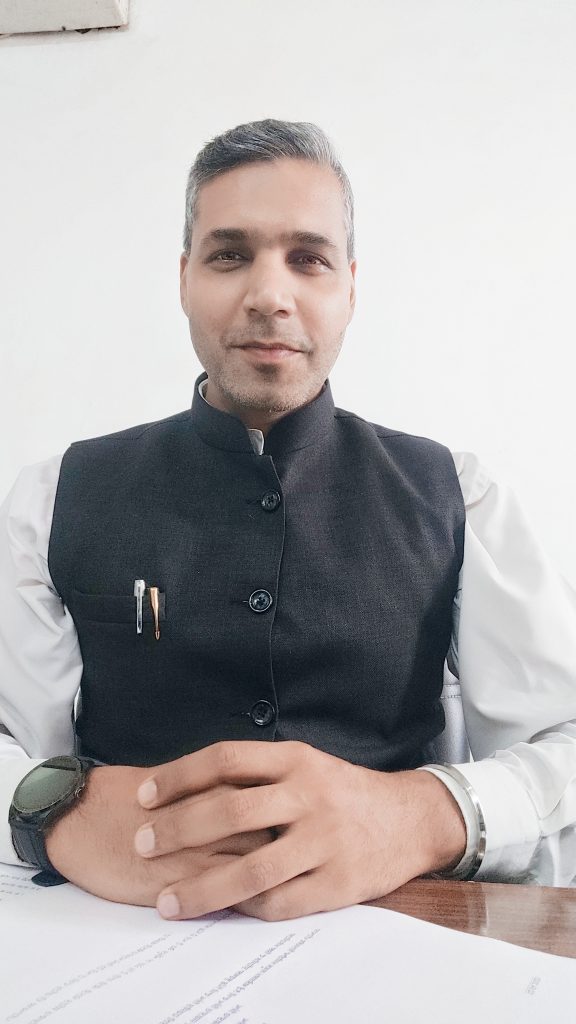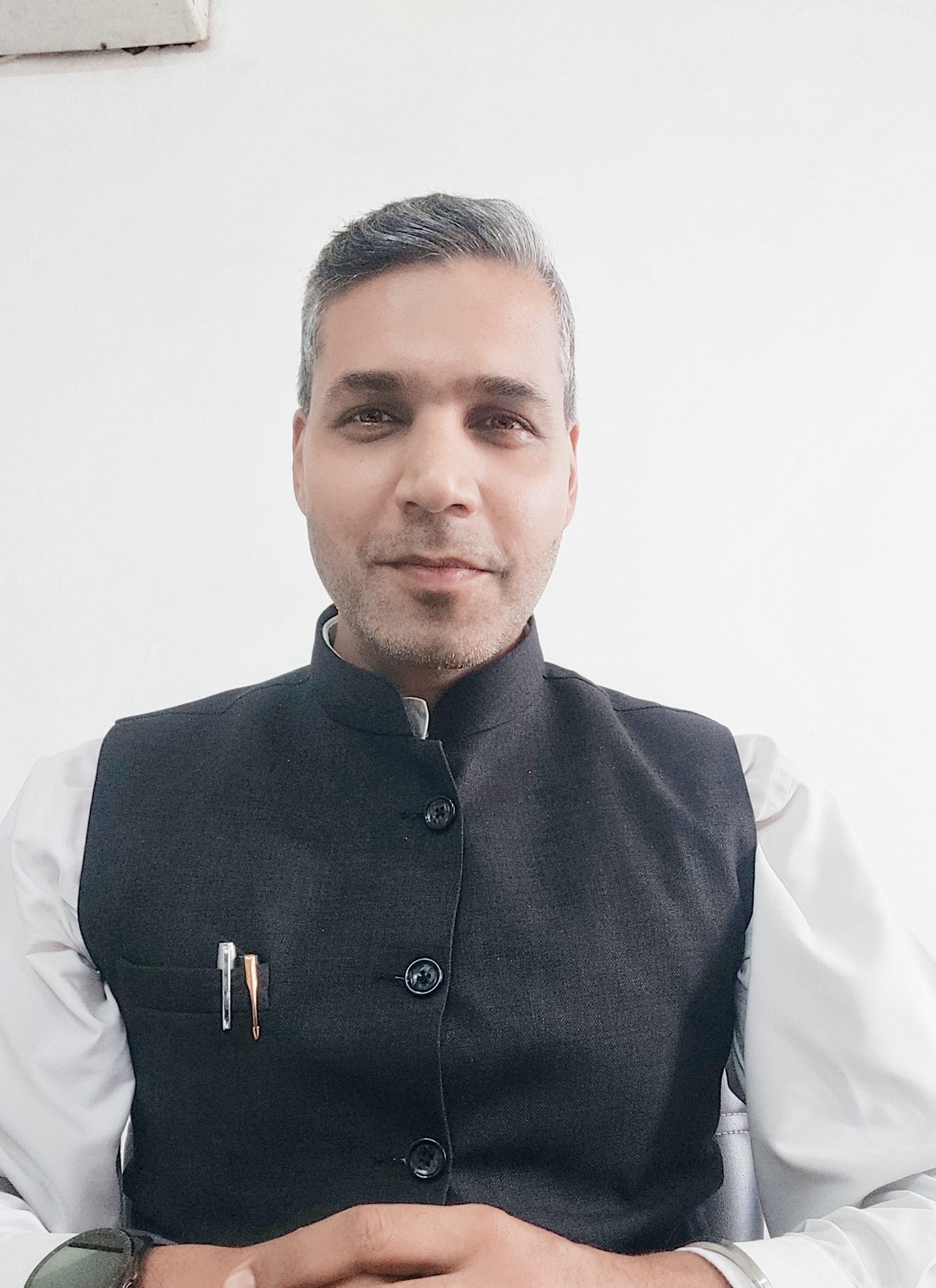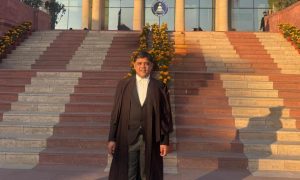This interview has been published by Namrata Singh and The SuperLawyer Team

You started your legal career in 2007 after completing your BALLB (Hons.) from Kurukshetra University. What motivated you to choose law as your career, and could you walk us through your journey from those early days to where you are now?
My entry into the Legal field was very much certain since I am a third generation Lawyer. My grandfather practiced in Labour Laws, my father is still practicing in District Courts Patiala and hence my parents had already decided during my childhood about my profession and hence I entered the field. Initially, I started learning the procedures followed in court and the ground realities of the Legal field where I came to know about how to apply what I learnt in my degree. For this, I actually went through the entire degree subjects 4-5 times again doing self-study in order to get a deep knowledge of the subjects so that I can have better understanding of the cases I got to handle. Slowly and gradually, I developed my own understanding in law and by that time I was able to handle the cases independently. Being a trial lawyer, handling the evidence part was most challenging and most interesting as well. I started cross examining the witnesses independently and luckily many cases went my way. However, in Patiala there wasn’t much to learn about since there was hardly any variety in the cases we got; mostly there used to be Cheque bounce matters, matrimonial disputes, NDPS etc. and those cases were very much cyclostyled and my eagerness to learn wanted me go out and do something new in the field.
You began your law practice at the Patiala district courts, where your father was a well-established professional. How did working in the district courts shape your approach to law, and what key lessons did you take away from those early formative years?
My time in the Courts was extremely important. Being a legal professional, the most important thing is to know how to draft a legal document and an in-house Counsel is always expected to have very crisp drafting skills which would go on to protect the interest of the organization. Further, being meticulous, attention to detail, presence of mind, patience and calculated aggression were the key qualities I learnt during my practice days.
You mentioned your encounter with the Legal Head of CIPLA, which inspired your transition into corporate law. What about that interaction made you decide to shift from litigation to becoming an in-house counsel?
As I had stated, in one of my cases related to CIPLA, I met the in-house counsel of the company and had a great conversation with him about how things go as an in-house counsel and what are the prospects. He told me that as an in-house, he came across several types of different cases and that made his knowledge in the field vast and comprehensive and to add to that the biggest incentive was the opportunity to travel. Afterwards, I discussed it with my elder brother, who was already working in corporate and he also reiterated a similar view. That was perhaps the trigger point of me looking to shift to the Corporate. It took me quite a while to get my first opportunity in a large organization. The first one month was like a roller coaster but gradually I managed to get into the system and started understanding corporate governance and that was perhaps the turning point of my life both professionally and personally as it gave me so much energy to work and live round the clock. Leaving the comfort zone was tough initially but once you are out of it, THERE BEGINS THE LIFE.
What advice would you give to young legal professionals who aspire to transition from litigation to corporate in-house roles, especially those aiming to work with large multinational corporations?
Ever since I have started my journey with the corporate, I have met many legal professionals eager to know how things work in the sector. Many are under the myth of “Corporate Slavery”. I shared my experiences with them of how I managed PAN India litigation and contracts of my first Company single handedly. From working for 4-5 hours a day in practice to working 16-18 hours in corporate was an eye opener and a huge confidence booster. I only advise the youngsters to look for excellence and not results early on. Law is a vast field and to move on in this field, not only you need to know the law, but how and where to apply it and this requires both theoretical as well as practical knowledge. In-House Counsels do a whole lot of drafting work including contracts, complaints, notices etc. Litigation lawyers hardly get to know about drafting of contracts and hence i advise them to find some good books pertaining to contract drafting if they have any plans to shift to the sector.
You’ve been involved in arbitration cases with values ranging from ₹50 lakh to ₹300 crore. What are some key skills a lawyer needs to successfully handle such high-stakes cases, and how do you manage the pressure?
When the stakes are high, the pressure is high as well but as a legal professional, my job is to find the law point and the circumstances favouring my organization so that I can benefit them or at least prevent any loss. The skills I learnt in practice also lets me foresee the tentative result sometimes and that helps us to plan accordingly. The thing with high stake matters is that you need to thing out of the box sometimes to get the desired results and for that you need to have strong legal knowledge but also to know the ground realities.
With over 17 years of legal experience and handling high-pressure cases, how do you manage work-life balance, and what advice would you give to legal professionals to avoid burnout?
In my previous organization, I did go through that burnout because of the urgencies involved. The stakes were high and time was less and that is when you learn and develop a strong temperament. Sometimes, there were late hour calls and emails but I had set a time for my “homework” so that I can give time to family and household works too and me being a travel bug, occasional holiday was always going to be there. To add to that, I am an early riser and a cyclist so every morning an hour’s ride would freshen me up with all the energy to go hard for the day.
In your view, how important is interdisciplinary knowledge, such as understanding business or finance, for a successful legal career in the corporate world?
Corporate is all about business and finances and whosoever is working in corporate needs to know about it. During my stint with Isgec Heavy Engineering, I learnt a lot about International Business processes as to how contracts of supply work and how the conditions are set by the companies and where to negotiate. I was naive back then but going through so many Contracts of Supply, Erection and Commissioning and those tender documents was another experience. Especially when I was told that the documents drafted by me are going to Russia or Dubai; it sometimes gave me goosebumps but it made me work harder and to get a better understanding about the subject.
You’ve managed a team of 40 lawyers in your current role. What leadership qualities do you think are essential for managing a successful legal team, and how do you mentor young lawyers under your guidance?
My job is to allocate the work to empanelled lawyers. Generally, I have a 5-10 conversation with the lawyer to understand his understanding on the subject and if he is a newcomer or unaware about the topic, I provide him/her with the relevant information along with legal provision and let them prepare the draft and as they say, a lawyer’s calibre can be judged by his drafting skills and so i always advise youngsters to draft the document from scratch and avoid doing copy paste; you’re never going to learn copying and pasting. Drafting skill to a lawyer is like a sword to a warrior. Further, a positive approach is a must while you work in a team. “you’re almost there” is always better than “you cannot do it”.
Looking ahead, what emerging legal trends do you think will significantly impact the corporate legal landscape, and how should aspiring legal professionals prepare for them?
The advent of technology has really brought a huge window for legal professionals to enter the corporate world. Earlier, the legal professionals were limited to law practice, judiciary or teaching but now the upcoming generation is proactive and are perhaps 5-7 years quicker than ours. Nowadays, in-house Counsel’s job is not limited to civil, consumer, criminal laws or contract laws; Technology laws, Artificial Intelligence, Intellectual Property Rights, Data Privacy laws have taken over and in the coming times, knowledge about these is going to play a key role. So, I always advise the aspiring professionals to keep getting some knowledge in the fields as they are going to play a pivotal role in carving them a successful in-house Counsel.
Get in touch with Ritin Vatrana–


























